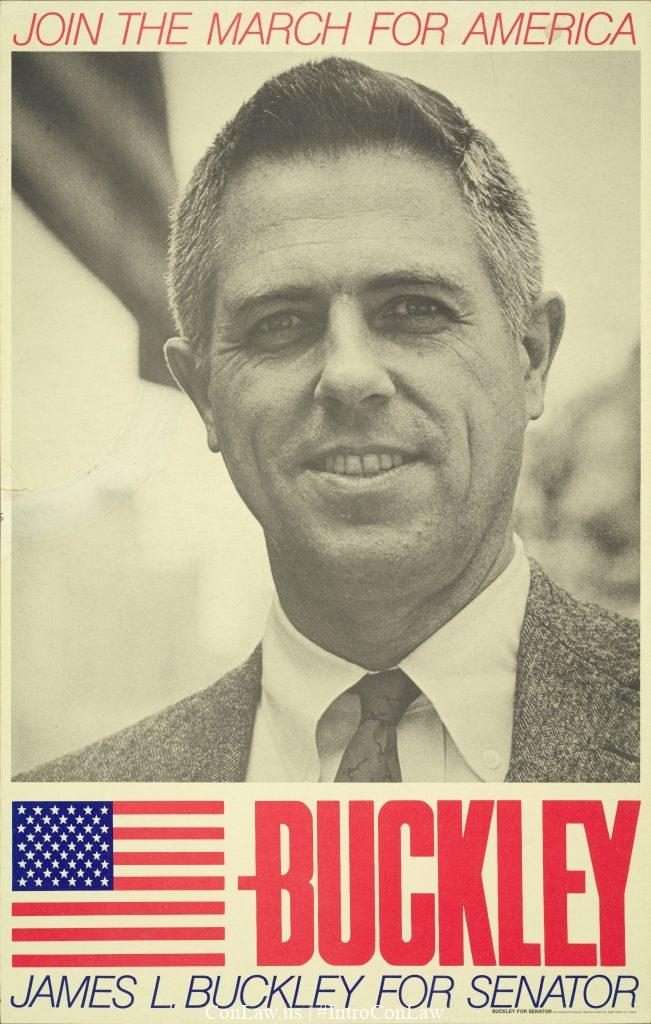The Volokh Conspiracy
Mostly law professors | Sometimes contrarian | Often libertarian | Always independent
Today in Supreme Court History: November 10, 1975
11/10/1975: Buckley v. Valeo argued.

Editor's Note: We invite comments and request that they be civil and on-topic. We do not moderate or assume any responsibility for comments, which are owned by the readers who post them. Comments do not represent the views of Reason.com or Reason Foundation. We reserve the right to delete any comment for any reason at any time. Comments may only be edited within 5 minutes of posting. Report abuses.
Please to post comments


Ex Parte Crouch, 112 U.S. 178 (decided November 10, 1884): federal courts cannot via habeas vacate state court convictions except on jurisdictional grounds (gradually abrogated, most specifically by Brown v. Allen, 1953)
Baltimore & O.R. Co. v. Kepner, 314 U.S. 44 (decided November 10, 1941): state court cannot interfere with resident injured railroad employee’s statutorily permitted federal venue of FELA action even if inconvenient for railroad (suit brought in New York courthouse 700 miles away even though accident happened 20 miles from employee’s house in Ohio) (winning side was represented by one Morrison R. Waite, grandson of a Chief Justice) (court notes expense of bringing 25 local witnesses to New York; looks to me like plaintiff wanted to force settlement in a meritless case)
Pfaff v. Wells Electronics, Inc., 525 U.S. 55 (decided November 10, 1998): patent invalid because inventor waited too long after entering into sale “order” before applying for it (it has to be within one year of sale, 35 U.S.C. §102(b))
Forget Citizens United, this is where the Supreme Court put the door wide open to crony capitalism. American elections have been for sale ever since.
This was where the Supreme court shut the door on comprehensive political censorship accomplished by controlling money spent on speech. (Well, openly government mandated comprehensive political censorship, anyway. Apparently they left the door open to covertly mandating it.) Wasn't until Citizens United that they locked it, though.
I love speech where the rich get more of it!
Yes, the left love equalizing everything by reducing it across the board -- speech, freedom, alla samee, eh?
Yes, this decision is my anticannon. Though there are many problems with our elections beyond money in politics, still, money implicates speech, but money is not speech.
If you were as familiar with American elections as you imply, you'd know the great examples of outspent candidates winning.
If you cared about the truth, you'd look it up. I will not waste my time providing examples, since your mind is already made up.
This seems like a good article on the issue of money and elections:
https://news.ufl.edu/articles/2018/10/money-in-elections-doesnt-mean-what-you-think-it-does.html
Is there a place where cronyism doesn't exist; capitalist or communist or any other form involving a government?
Re: Buckley vs Valeo
Facts of the case
In the wake of the Watergate affair, Congress attempted to ferret out corruption in political campaigns by restricting financial contributions to candidates. Among other things, the law set limits on the amount of money an individual could contribute to a single campaign and it required reporting of contributions above a certain threshold amount. The Federal Election Commission was created to enforce the statute.
Question
Did the limits placed on electoral expenditures by the Federal Election Campaign Act of 1971, and related provisions of the Internal Revenue Code of 1954, violate the First Amendment's freedom of speech and association clauses?
Conclusion
In this complicated case, the Court arrived at two important conclusions. First, it held that restrictions on individual contributions to political campaigns and candidates did not violate the First Amendment since the limitations of the FECA enhance the "integrity of our system of representative democracy" by guarding against unscrupulous practices. Second, the Court found that governmental restriction of independent expenditures in campaigns, the limitation on expenditures by candidates from their own personal or family resources, and the limitation on total campaign expenditures did violate the First Amendment. Since these practices do not necessarily enhance the potential for corruption that individual contributions to candidates do, the Court found that restricting them did not serve a government interest great enough to warrant a curtailment on free speech and association. (oyez)
Judgment
In a per curiam opinion, the Supreme Court held that several key provisions of the Campaign Finance Act, § 608(a), which limited expenditure by political campaigns, are unconstitutional and contrary to the First Amendment. The major holdings were as follows:
The Court upheld limits on contributions to candidates.
The Court upheld limitations on volunteers' incidental expenses.
The Court upheld the aggregate limit on an individual's total contributions to all candidates and committees in a calendar year.
The Court struck down limits on expenditures by candidates.
The Court struck down limits on independent expenditures (i.e., expenditures by other groups or individuals than candidates and political parties).
The Court upheld mandatory disclosure and reporting provisions, but it narrowed the types of speech to which they could apply.
The Court upheld a system of voluntary government funding of campaigns, including limits on spending by candidates who choose to accept government subsidies.
The Court struck down the system by which members of Congress directly appointed Federal Election Commission commissioners. (wiki)
This is a super complex case with five separate Concur/Dissents:
Concur/dissent Burger
Concur/dissent White
Concur/dissent Marshall
Concur/dissent Blackmun
Concur/dissent Rehnquist
That was the same day that the Edmund Fitzgerald sank. The legend lives on.